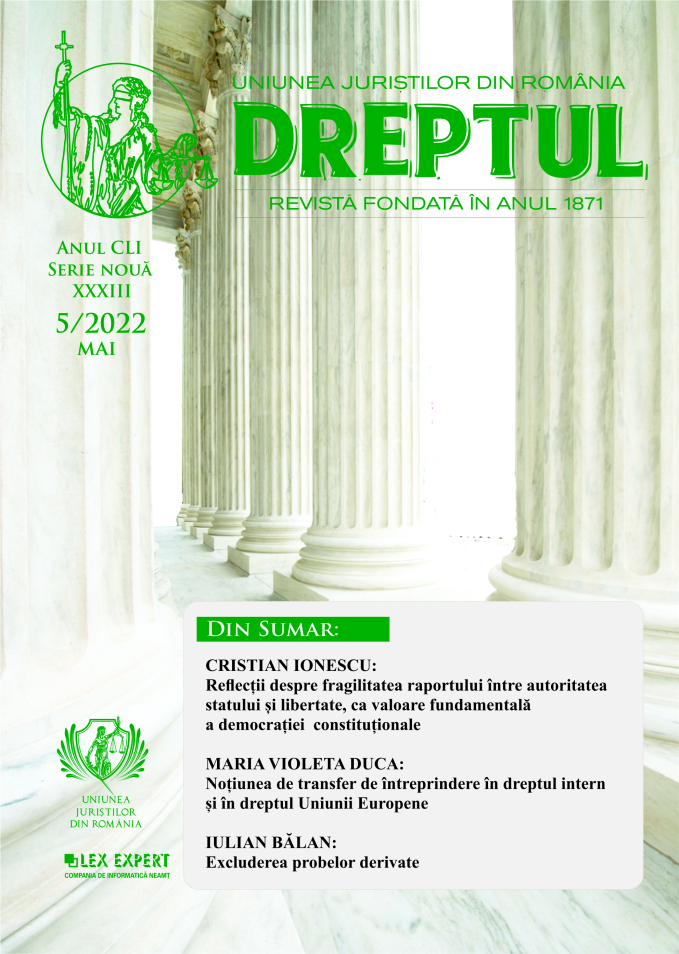Noțiunea de transfer de întreprindere în dreptul intern și în dreptul Uniunii Europene
The notion of transfer of undertaking in the domestic law and in the European Union law
Author(s): Maria Violeta DucaSubject(s): Civil Law, EU-Legislation, Labour and Social Security Law
Published by: Uniunea Juriștilor din România
Keywords: Directive 2001/23/EC; transfer of undertaking; conforming interpretation; transfer of property right; conventional assignment;
Summary/Abstract: The study aims to analyze the situation in the domestic law of the application of the institution of transfer of undertaking in relation to the exigences of Directive 2001/23/EC as interpreted by the Court of Justice of the European Union. The premise of a correct interpretation and application of this institution is the knowledge of the essential aspects developed in the case law of the Court of Justice of the European Union that analyzes the scope of application ratione materiae of Directive 2001/23/EC, among which are emphasized the distinction made by the Court between labour force-based companies and companies whose activity necessarily involves the exploitation of goods, as well as the autonomous meaning attributed to the notion of „conventional assignment”. Furthermore, the author shows that the regulation of the notion of transfer of undertaking from the domestic law restricts the scope of application ratione materiae of the Directive 2001/23/EC, non-compliant conditions being imposed, such as the transfer of the property right from the assignor to the assignee and the existence of a contractual link between the assignor and the assignee. The analysis of the judicial practice of the national courts and of the opinions expressed in the doctrine shows that a unitary point of view has not been outlined with regard to the possibility of applying the principle of conforming interpretation of the domestic law in order to ensure the full effect of the provisions of Directive 2001/23/EC. In a first opinion, it is argued that the full effect application of the Directive from the perspective of the scope of application ratione materiae can be achieved through a conforming interpretation of the domestic law which allows to leave the contrary internal legal provisions be disregarded, without thereby reaching to a direct application of Directive 2001/23/EC. According to the second point of view, the extension of the institution of the transfer of undertaking over the express normative content of the internal provisions, in the absence of any legal operation of assignment or merger, without having as object the property right, would be an interpretation contra legem. In compliance with the limits of the principle of conforming interpretation stated in the case law of the Court of Justice of the European Union, the conclusion supported by the author of this study is that the conforming interpretation of the national law is an effective remedy for the full application of the provisions of Directive 2001/23/EC.
Journal: Revista „Dreptul”
- Issue Year: 2022
- Issue No: 05
- Page Range: 9-24
- Page Count: 16
- Language: Romanian
- Content File-PDF

